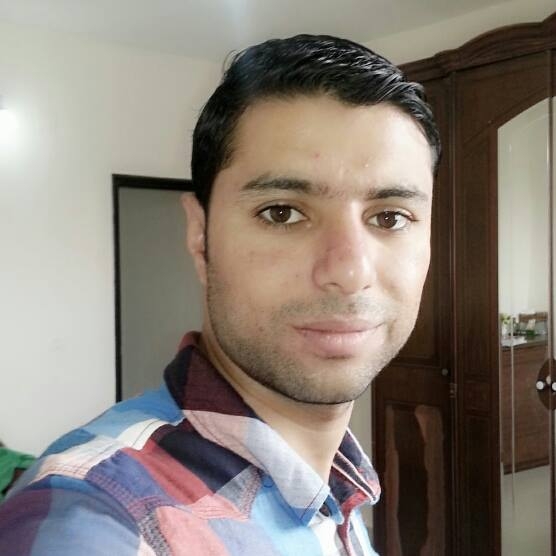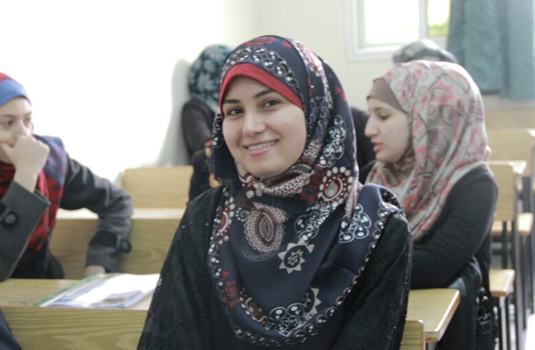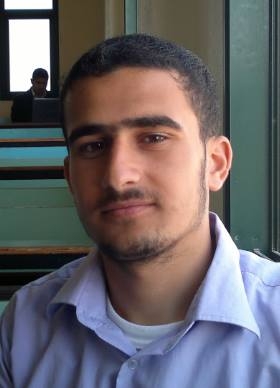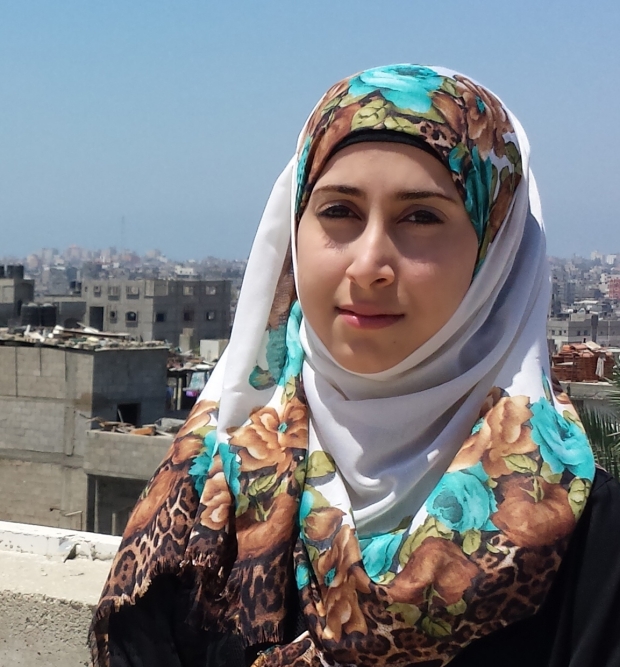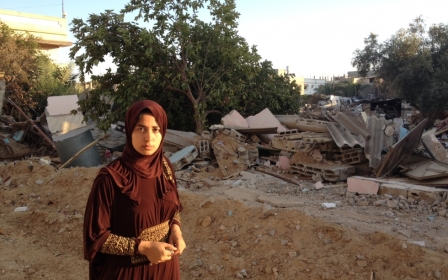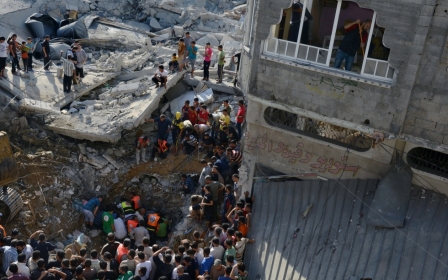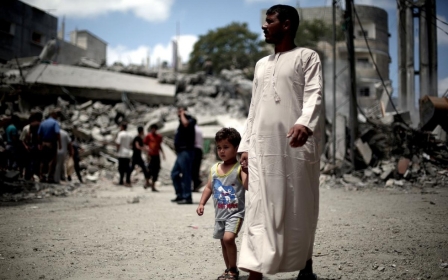Gazan youths have their say
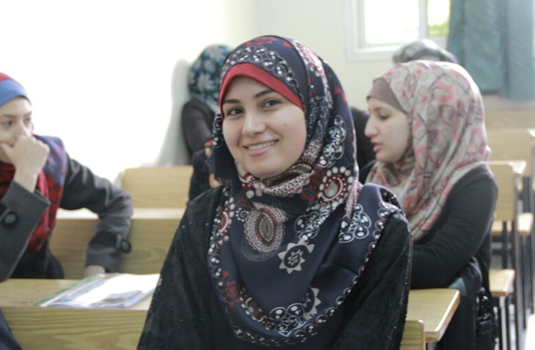
Mohammed Awad
Mohammed Awad, 25, holds a BEd degree in teaching English. He is currently working as a translator and teacher at the Humans without Borders society. He is also a blogger and social activist.
Another terrible but typical night. The electricity went out at 11pm. I am trapped at home, waiting for the unknown. I try to keep myself busy, to stop thinking about war and bloodshed. I open the Qur'an and read some verses, then fall asleep. All of a sudden, I hear a loud explosion and screams coming out from the nearby houses. Sounds of broken glass dropping off on to the ground in our kitchen. Immediately, I realise a neighbouring house has been targeted. My family wake up and start to shout. They are badly shaken after the bomb blast. We gather in a safe spot at my house. As the Israeli warplane targets the house, the whole block once again flees in terror. Everyone runs into the streets, heading nowhere, just running and walking away from the targeted house. The ambulances come quickly and take some casualties. We stand, wondering whether to leave or to stay. This is how the safest area sounds during this military offensive and oppression.
Rawan Awny Abu Asad
Rawan Awny Abu Asad is a 20-year-old Gazan from Deir al-Balah. Studying journalism and media at the Islamic University of Gaza, she is a scriptwriter, blogger, reporter for Electron Youth Network magazine and a film-making trainee.
“May Allah help you to come over the pain and the hardship of the coming days of your life." My grandfather (may he rest in peace) used to say that all the time, but it’s only lately that I really understood what he meant.
After a month of the most savage war in the 21st century, I firstly thank Allah that I've survived the missiles and rockets that I've seen falling like rain on my neighbourhood. I still see that nightmare every time I close my eyes, and I still hear the sound of the warplanes and drones hovering above my Gaza.
The scene of rockets' fragments, blood and shrapnel covering the stairs and the entrance of my home will never ever vanish from my mind.
While the hospital, which is very close to my home, was under attack by warplanes and artillery, I can remember what my five-year old brother said to me: "Stop shaking, I can feel and hear the shaking of your heart."
The unbelievable pain we suffered means we need greater hearts to bear our loss and suffering - that's why I believe we are Les Misérables of the world.
Mohammad Salah Arafat
Mohammad Salah Arafat is an English graduate of the Islamic University of Gaza.
I was dreaming of getting a Masters degree in creative writing, when my mother woke me up, asking me to hurry as much as I could. I got up and rushed to the window of my room. The scene that greeted me was ghastly - bullets and shells littered the ground. It was as if the real suffering of the emigrants of the 1948 catastrophe had been applied to my neighbourhood. Black, frozen blood filled the dusty roads; dead bodies of innocent children were everywhere. The smell of gunpowder was in the air. Women and young girls were running without veils, saving their tears. Men were carrying white flags and running in their bare feet, distress in their tired hearts. Small children were crying. The scene resembled something like the day of judgment. I thought that I would never join that crowded stream of people, but my father pushed me and my family into that human jam. I passed out while running. I woke up eventually in one of my relatives' small homes not believing what was going on.
Afnan Sharawi
Afnan Sharawi is 21 years old. She lives in the north of Gaza, and is currently studying English literature at the Islamic University of Gaza. Her dream is to be a writer and "that's because I want to reveal to the world how Gaza is struggling to live".
Gathering in one room in order to die together is indescribable and just can’t be expressed through words. In fact, we don’t just gather; we cuddle each other so no one can be left alive alone. Since the beginning of the war, we’ve lived like this until the Israeli tanks attacked our home with a missile. Fortunately, the missile didn’t explode. Yes, we’ve survived an attack - miraculously. Israel keeps on saying that it doesn't attack civilians. But that’s wrong, it has attacked us. Israel keeps on saying that it attacks tunnels - it seems to forget how food was smuggled in the Warsaw ghetto. In this war, 398 children have been killed while not even one Israeli child got killed, and the world is still making a big deal about the death of an Israeli officer.
New MEE newsletter: Jerusalem Dispatch
Sign up to get the latest insights and analysis on Israel-Palestine, alongside Turkey Unpacked and other MEE newsletters
Middle East Eye delivers independent and unrivalled coverage and analysis of the Middle East, North Africa and beyond. To learn more about republishing this content and the associated fees, please fill out this form. More about MEE can be found here.


